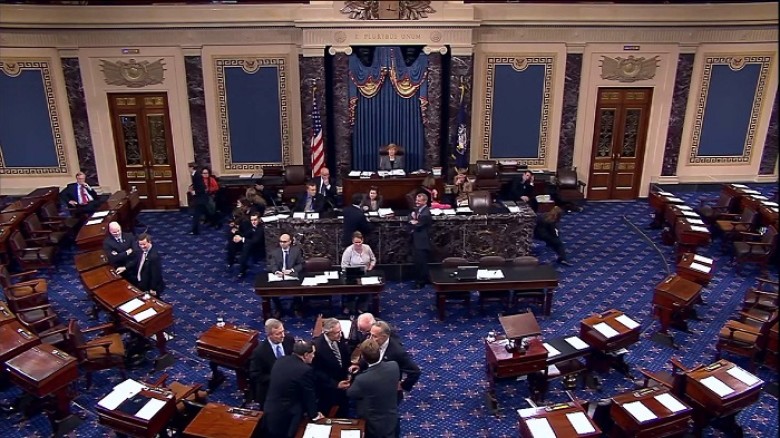US senate approves $9bn cuts to foreign aid
The Senate of the United States has sanctioned a contentious $9 billion reduction in spending proposed by President Donald Trump, focusing on cuts to foreign aid and funding for public media.The measure, which was narrowly approved with a vote of 51-48 early Thursday morning, indicates a growing Republican push for significant budget cuts influenced by the now-defunct Department of Government Efficiency, previously headed by Elon Musk.
This extensive reduction includes an $8 billion cut from foreign assistance programs—impacting agencies such as USAID—and a $1 billion deduction from the Corporation for Public Broadcasting (CPB), which finances NPR, PBS, and over 1,500 public radio and television stations across the country.
Initially, the House's version of the proposal aimed to cut $400 million from global health programs, including the highly regarded PEPFAR initiative, recognized for saving more than 26 million lives through its efforts in HIV/AIDS relief. However, pressure from moderate Republicans led to the removal of that element.
Not all Republicans supported the vote unanimously. Senator Lindsey Graham from South Carolina, who advocates for robust foreign policy, expressed his support for the bill but raised concerns about the trajectory of aid funding. “I’m a big fan of foreign aid and soft power,” he noted, “but when the funds are directed to ineffective programs disconnected from our strategic objectives, it complicates our ability to advocate for them.”
This legislation, an uncommon "rescissions package" that retracts funding that was previously authorized, must be sent back to the House for final endorsement before Friday to prevent automatic releases of funds. The White House has exerted pressure on Congress, with Trump reportedly indicating he might withhold support from Republican dissenters.
The cuts align with the fiscal strategy set forth by Musk's DOGE initiative prior to his resignation in May, which followed reported disputes with Trump over the extent and pace of federal reductions. Despite DOGE claiming to identify potential government savings of up to $190 billion, these estimates have been challenged by fact-checkers and independent analysts.
Public broadcasting, frequently criticized by conservatives for perceived ideological bias, is set to face significant challenges under this plan. In May, Trump enacted an executive order to eliminate funding for NPR and PBS, a decision that this legislation has reaffirmed.
Senate Democrats criticized the vote. Senator Cory Booker from New Jersey termed the cuts “a betrayal of constitutional responsibility,” asserting, “This is a group of my colleagues subservient to the president, relinquishing our authority to safeguard the public interest.”
Democrats contend that these reductions will unfairly affect vulnerable global communities and restrict access to reliable news outlets while doing little to address the national deficit. However, the vote illustrates the Republican agenda to advance more cost-cutting measures based on the DOGE philosophy, despite ongoing divisions within the party regarding the strategic importance of foreign aid.
























Leave A Comment